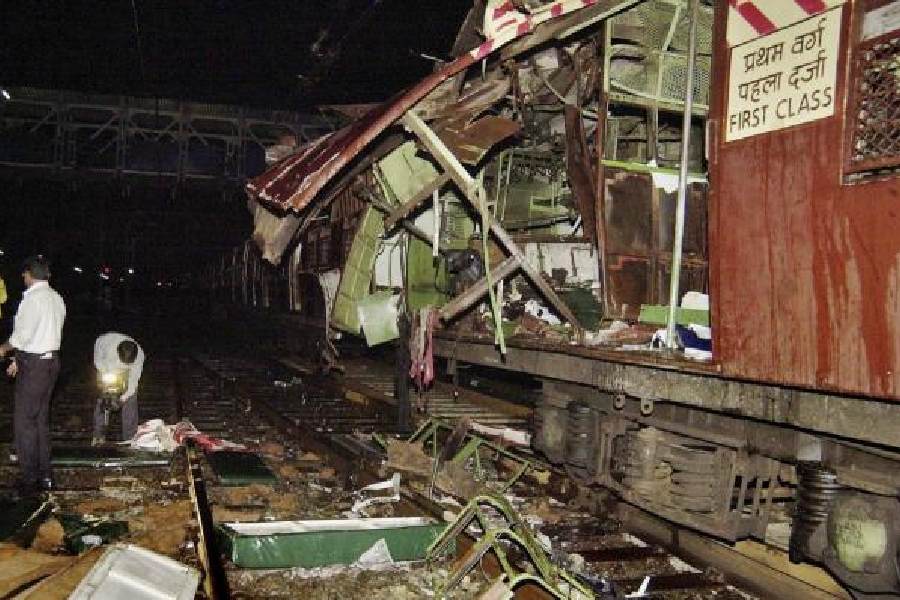The Supreme Court on Thursday partially stayed Bombay High Court’s judgment that acquitted all the 12 convicts in the 2006 Mumbai train blasts that killed over 180 people, but refrained from directing the surrender of the accused, who have already been released.
On a request from the Maharashtra government, which has challenged the high court order, the apex court made it clear that the acquittals would not become a precedent for other organised crime or terror cases, and "the impugned judgment is stayed to that extent".
For now, the hearings will go on and if the acquittals are eventually struck down, orders would be issued for the accused to be rearrested.
The bench of Justice M.M. Sundresh and Justice N. Kotiswar Singh issued formal notices to all the 12 accused while orally observing that it was aware that a few of them were Pakistanis.
The court passed the order after solicitor-general Tushar Mehta, appearing for the Maharashtra government, waived the state’s plea for bringing the accused back to jail until the apex court had disposed of the government’s appeal.
Mehta said: “So far as stay is concerned, we are conscious of the facts and developments. I am seeking a stay not for the purpose of bringing them (convicts) to jail.”
He added: “But there are certain findings of law recorded in the impugned judgment which will affect trial in other MCOCA (Maharashtra Control of Organised Crime Act, 1999) cases. Your Lordships may consider saying that they may not be required in jail.”
Justice Sundresh observed: “We have read the files. Some are Pakistani nationals. We will grant notice in the matter.”
The bench then dictated an order saying: “We are informed all respondents are released and therefore no question of bringing them back. However, on the submissions of the learned solicitor-general, we direct that the impugned judgment shall not be treated as a precedent. The impugned judgment is stayed to that extent.”
On July 21, a two-judge division bench of Bombay High Court had set aside the convictions handed to the 12 accused by a special MCOCA court, holding that the prosecution had failed utterly to establish the case against them.
It quashed the death sentences awarded to five of the convicts by the trial court and the life sentences of the remaining seven. All the convicts had spent at least 10 years in jail.
The high court verdict came 19 years after the July 7, 2006, serial blasts in Mumbai’s local trains that killed more than 180 people and injured many. The acquittals evoked anguish and criticism from the families of the dead and injured.
The Maharashtra government too expressed shock and challenged the verdict, arguing the evidence against the accused was compelling.










